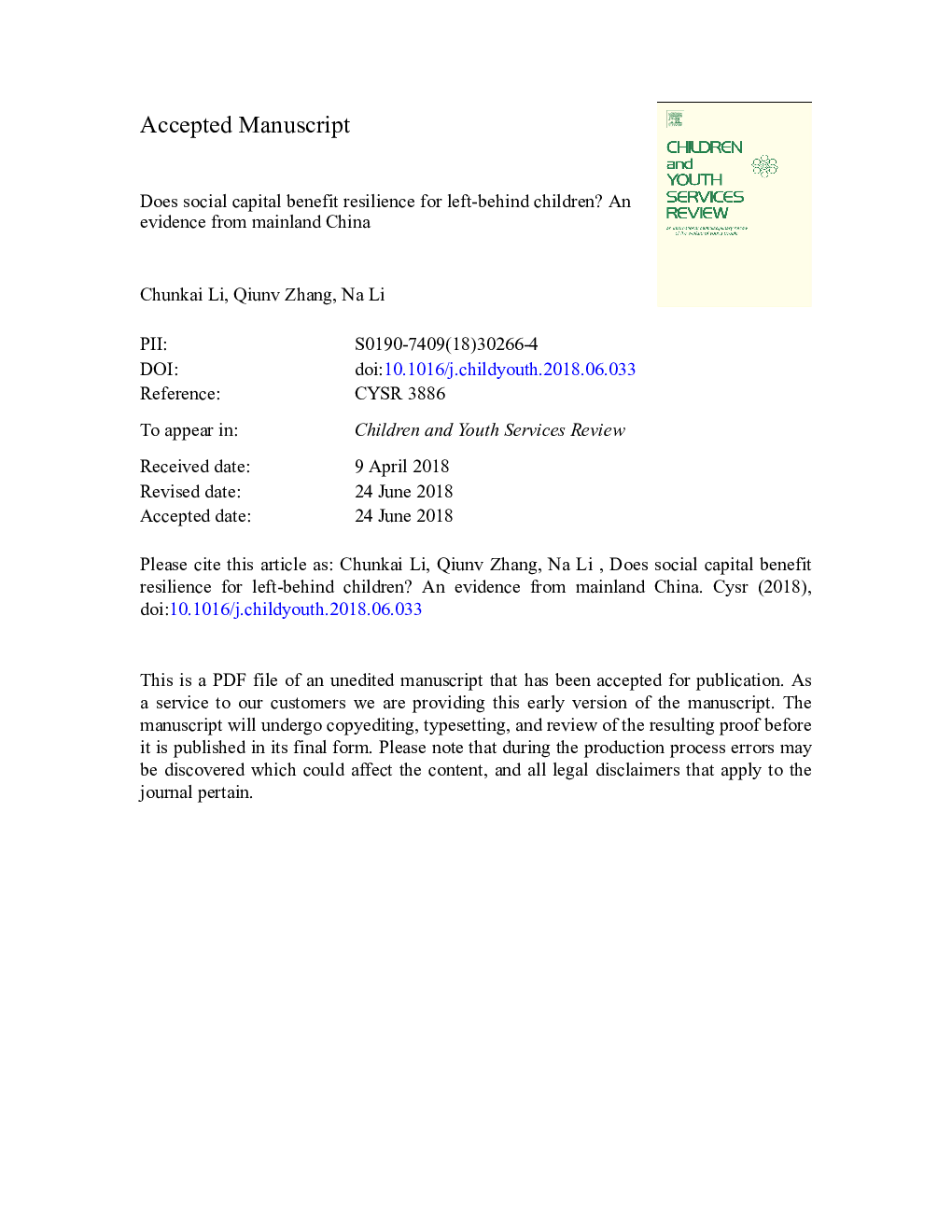| Article ID | Journal | Published Year | Pages | File Type |
|---|---|---|---|---|
| 6832829 | Children and Youth Services Review | 2018 | 35 Pages |
Abstract
As the largest developing country in the world, China undergoes continuous urbanization, which has led to the increasing number of left-behind children. This study aimed to adopt an ecological framework to explore how social capital embedded in family, peer, school, and community interplay and affect the resilience of left-behind children. Data of 476 (maleâ¯=â¯244; femaleâ¯=â¯232) left-behind children in Chuzhou City, Mainland China were collected through multi-stage cluster random sampling. Structural equation modeling with Amos 21.0 was used to verify the hypothesized model. The results demonstrated that higher levels of family, school, and community social capital were associated with greater resilience of left-behind children. However, peer social capital did not have significant effect on the resilience of left-behind children. In addition, this study found that the community social capital would indirectly influence the resilience of left-behind children through the mediators of family and school social capital. The implications of these findings on theory, social work services and social policy were discussed.
Related Topics
Health Sciences
Medicine and Dentistry
Perinatology, Pediatrics and Child Health
Authors
Chunkai Li, Qiunv Zhang, Na Li,
